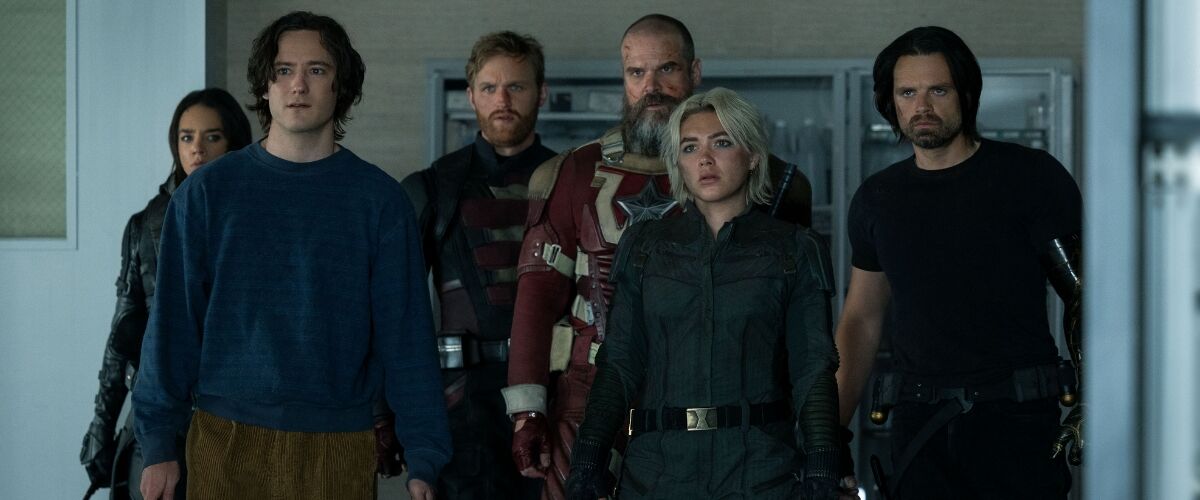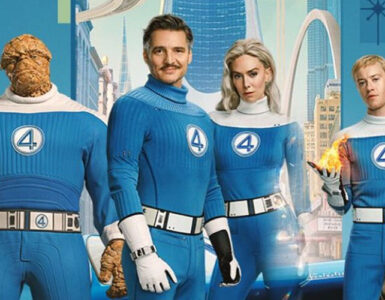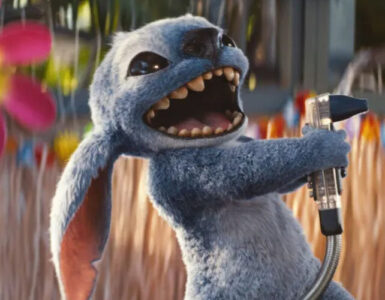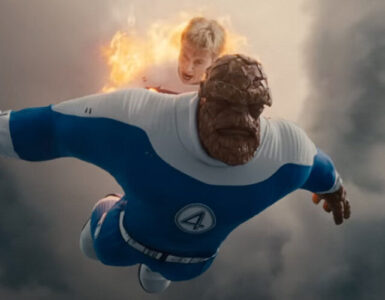This interview has been edited for clarity and contains minor spoilers.
As a huge fan of Marvel Comics’ Thunderbolts series, director Jake Schreier (Paper Towns, Beef) will be the first to acknowledge the towering shadow cast by the series on his Thunderbolts* movie of the same name, sans the *, in the Marvel Cinematic Universe (MCU).
But he’ll also be among the fans who tell you that the comic book version of the team will never fit into the MCU.
When writer Kurt Busiek and artist Mark Bagley first introduced the Thunderbolts in 1997, readers thought they were witnessing the rise of Marvel’s next great superhero team but what they got instead was one of the most audacious bait-and-switch in comic book history.
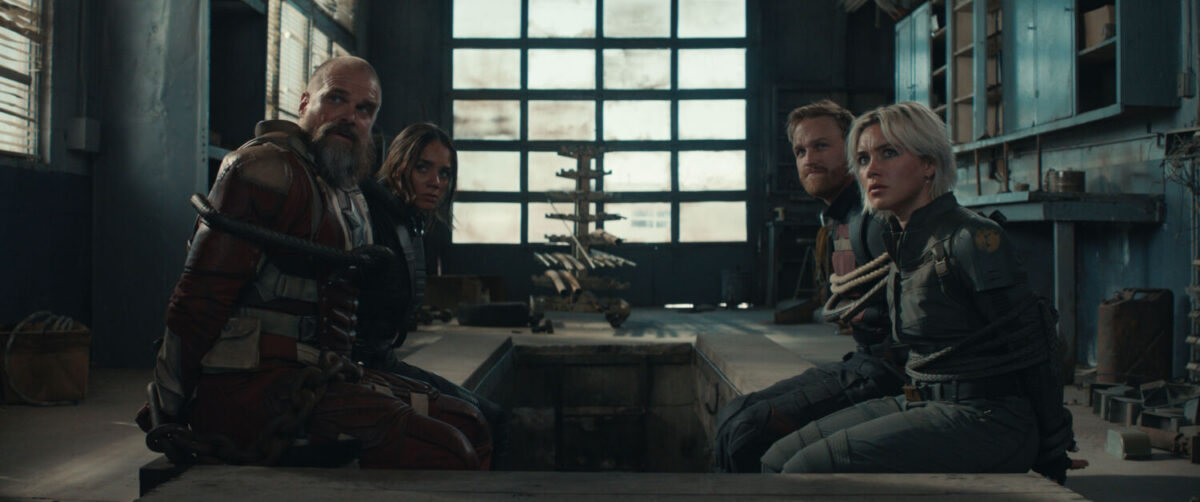
Promoted as the replacement team for the presumed-dead Avengers and Fantastic Four, the Thunderbolts were revealed, only at the end of the first issue, to be none other than Baron Zemo’s (as Thunderbolts’ leader Citizen V) supervillain team, the Masters of Evil in disguise. Under the guise of heroes were villains along the likes of Spider-Man foe Beetle (as MACH-1), HYDRA scientist Fixer (as Techno), one-time Avengers adversaries Goliath (as Atlas), Moonstone (as Meteorite), and Screaming Mimi (as Songbird), masquerading as heroes for their own gain. It was a twist that Marvel kept secret until readers turned the final page, and it remains one of the boldest reveals the publisher ever pulled off.
In the years since, the team and its members have undergone countless reinventions, where some of the villains reformed and became heroes though the original betrayal remains the defining moment of their legacy. That legacy now looms large over the 36th film in the MCU, notes Schreier in an exclusive interview with Geek Culture, especially since his group of Thunderbolts shares nothing in common with its comic book counterpart.
“I am a fan. I am aware that people are like, ‘Hey, this isn’t the Thunderbolts,’” he says. “I would say that we know. We know that. I think it would be very hard to tell that story in an MCU context, doing a final reveal of the Masters of Evil.”
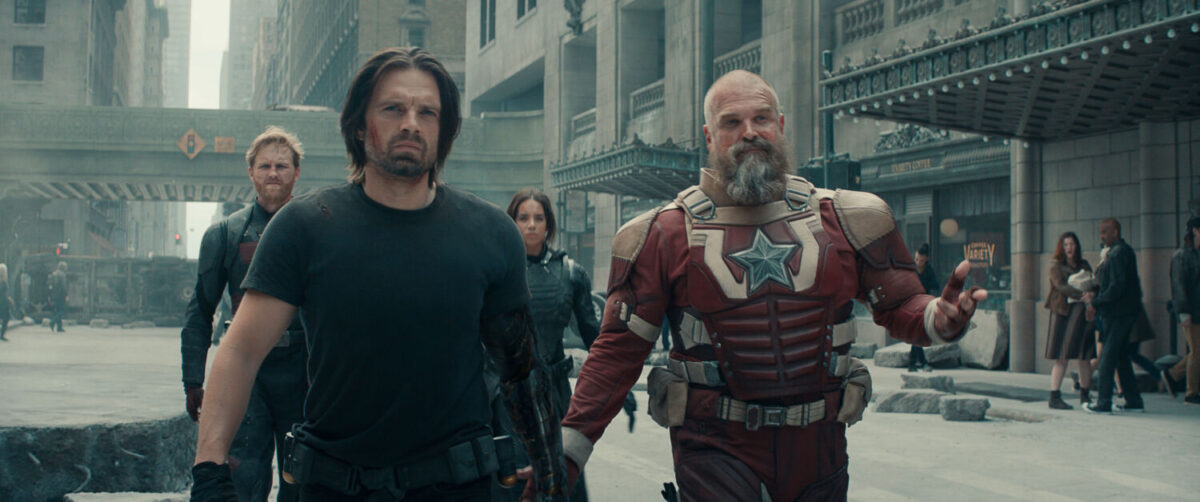
Still, Schreier teases that the film won’t ignore its roots entirely. “But if people get to the end, they’ll see that it honours that concept in its own way. That’s something that’s always so encouraging about the way Kevin [Feige] runs the studio is that he always wants to take a different tack and honour those comics, the ideas in them and what makes them so great, but make sure that you’re making something new.”
Adding to the anticipation, Schreier also hinted at the film’s broader implications for the MCU, especially when it connects directly to 2026’s Avengers: Doomsday, where most of the actors in his film were revealed to be appearing in the upcoming film led by Iron Man-actor Robert Downey Jr. who now plays well-known Marvel super villain, Doctor Doom.
“Well, it certainly bridges,” teases Schreier, “There definitely is going to be a lot of connective tissue, and I would recommend sticking around to the very end.”
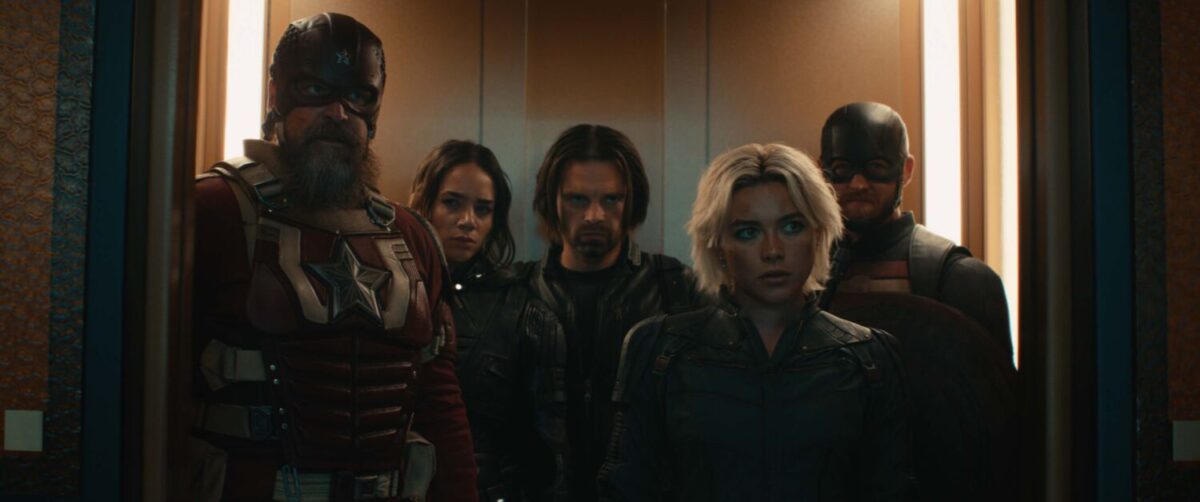
Could this be the infamous Thunderbolts comics twist making its appearance in Thunderbolts* at the end?
But rather than attempt to replicate the original premise, Schreier and Marvel have chosen to reinterpret its spirit.
Instead of a team built on deceit from the public, these Thunderbolts are built on deception among themselves, comprising a band of misfits and anti-heroes like Yelena Belova (Florence Pugh, Oppenheimer), Bucky Barnes (Sebastian Stan, A Different Man), Red Guardian (David Harbour, Stranger Things), Ghost (Hannah John-Kamen, Killjoys), and John Walker (Wyatt Russell, Monarch: Legacy of Monsters), thrown into a trap not by MCU’s Baron Zeno (Daniel Brühl, Rush), but by the manipulative Valentina Allegra de Fontaine (Julia Louis-Dreyfus, Seinfeld), the Director of the Central Intelligence Agency (CIA) who had become interested in recruiting powerful individuals. Conveniently at the time of writing, this MCU’s Avengers are no more, and the Fantastic Four hasn’t been introduced yet.
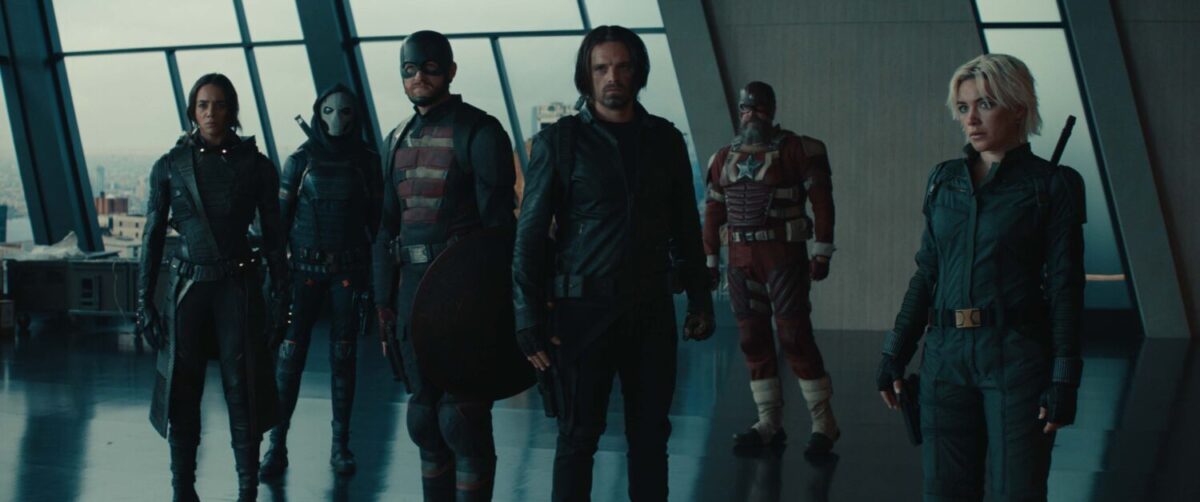
And Schreier never wished for anyone else to be on his team of anti-heroes. “Once you’ve worked with these actors and they’re so good, I couldn’t imagine it being anyone else,” he says. “I did suggest maybe we put Man-Thing on the team… but the Sentry (Lewis Pullman, Top Gun: Maverick) was a much better idea. I was wrong.”
The decision to introduce Sentry, also known as Bob Reynolds, a character grappling with fractured mental health and a destructive alter-ego known as The Void, allowed Schreier and his collaborators to push the genre’s emotional boundaries.
“Coming off doing the TV show called Beef (2023) with a friend of mine, [screenwriter] Lee Sung Jin (Mothman) – and we brought him as a collaborator into this – that show deals with a lot of the same themes and has a similar balance of tone of sort of comedy, but also real darkness explored, and action,” he shares. “That was a roadmap of how we could attempt to do something like that on an even larger scale.”
“It felt like there was a real opportunity to make a movie about something a little more internal and something that we could all relate to, and find a way to dramatise that on an external level, but to really go more interior with the story.”
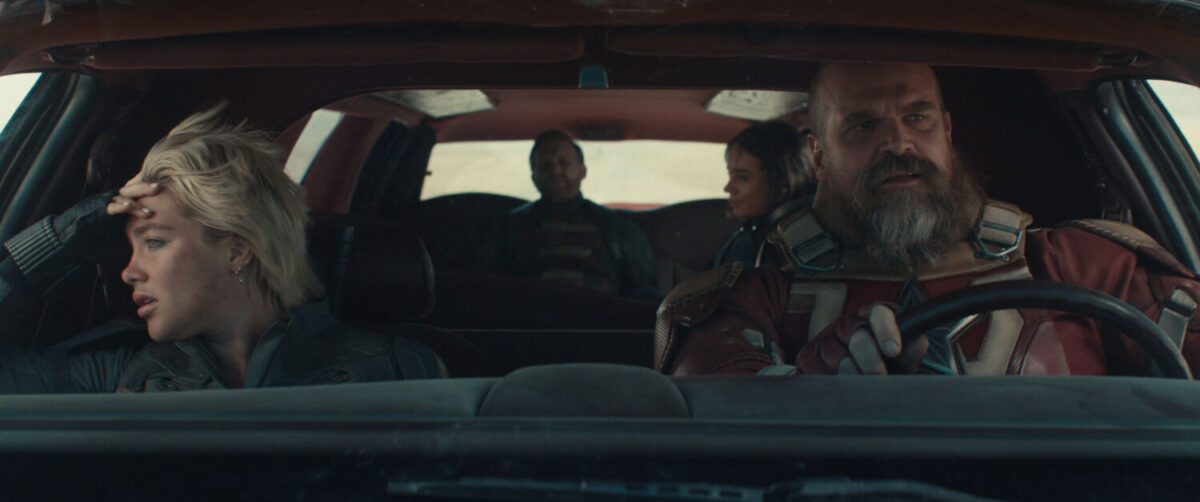
Internal struggles, especially around trauma and identity, are what set Thunderbolts* apart from easy comparisons to another anti-hero flick where a group of convicts have to band together to save the world, namely DC’s The Suicide Squad (2021), though a comparison was never considered as Schreier makes it clear, “From the beginning, the first script I read, I thought [screenwriter] Eric Pearson (Thor: Ragnarok, Black Widow) had done such a good job of putting a twist on that, where it wasn’t about assembling a team to do black ops,” says Schreier.
“It was about sending a group of people to kill each other and be gotten rid of, and that they would have to learn how to work together if they were going to get out of there alive.”
That theme of survival, both emotional and physical, courses through the cast’s performances. Pugh’s Yelena, still reeling from the loss of her sister Natasha Romanoff (Scarlett Johansson, Lucy) in Avengers: Endgame (2019), becomes the reluctant heart of the film. Opening the movie by throwing herself off the second-tallest building in the world, the Merdeka 118 in Kuala Lumpur, Malaysia, which stands at 678.9 metres (2,227 feet) tall, shows that Yelena’s free fall is more than a stunt, but a metaphor for where she is mentally and emotionally.
“When I read it, it felt like she was stepping off a building, as if she was taking her own life,” Pugh explains in a press conference that Geek Culture attended.

“For someone to jump off a building like that, it was, it’s harrowing. It’s not a nice image to have, which is why, when she actually steps off, everybody’s stomachs do just flip. It’s an image that we only all associate with something really bad.”
“[Yelena] is at such a loss. She doesn’t have any reason to be there anymore. She’s lost her sister, she’s lost her family, the relationship with her father has dwindled to nothing, and she’s in such a state and a frame of mind that she’s happy to put herself at risk.”
Pugh insisted Yelena wear a tracksuit instead of her super suit to physically reflect her broken state. “She’s actually asking herself to be put in all these situations to potentially get killed. She needs to be in something that doesn’t protect her. So then we open up the discussion with her being a track suit, if she’s going to do one of these missions and she’s going to fight, let’s have a let’s take away the added layer of protection, which would be her super suit, and which would have all of her buttons and her gadgets.”
“That also adds texture as to how desperate she is for someone to end it for her.”

And it was this direction that made Schreier trust the actress completely, including allowing the star to physically jump off the building in one of the film’s most amazing stunts. “What’s really so impressive about that stunt is not just that she did it. It’s the acting within it. It’s like an acting stunt,” he adds.
“[Florence] is just so amazing at what she does, and she cares so deeply about this character. She just has so much depth as an actress, and can swing so easily. When you talk about those tonal shifts, you need great actors to do that, who can really play the honesty of that character when moments are humorous, it’s not about playing for laughs as much as inhabiting the character in a funny moment and making that just as true. And those kind of sadder moments, those more interior ones, she’s just so excellent at doing that.”
The emotional weight extends to Pullman’s Sentry, who embodies the movie’s exploration of hidden darkness. Pullman, open about his own struggles with anxiety and depression, reflects that the goal was never to turn Sentry’s story into a public service announcement.

“I grew up pretty anxious and depressed and that was not a fun thing to talk about,” he says. “But that was a big goal in in this film, to be like, let’s get rid of that weird feeling that you get when you talk about it, because that’s what you know this movie is all about, is that when you know you can get caught if you just jump and if you have people around you.”
Reinforcing the theme of found family within the chaos, Pugh echoes, “It’s just a very impressive thing to see in a Marvel movie that is going to be seen by plenty of people, a message that we all need to constantly learn from and see: that we all need to be there for each other.”
“And essentially, that’s how [Yelena] gets saved. She gets saved by this new family.”
Marvel Studios’ Thunderbolts* strikes cinemas on 1 May.

